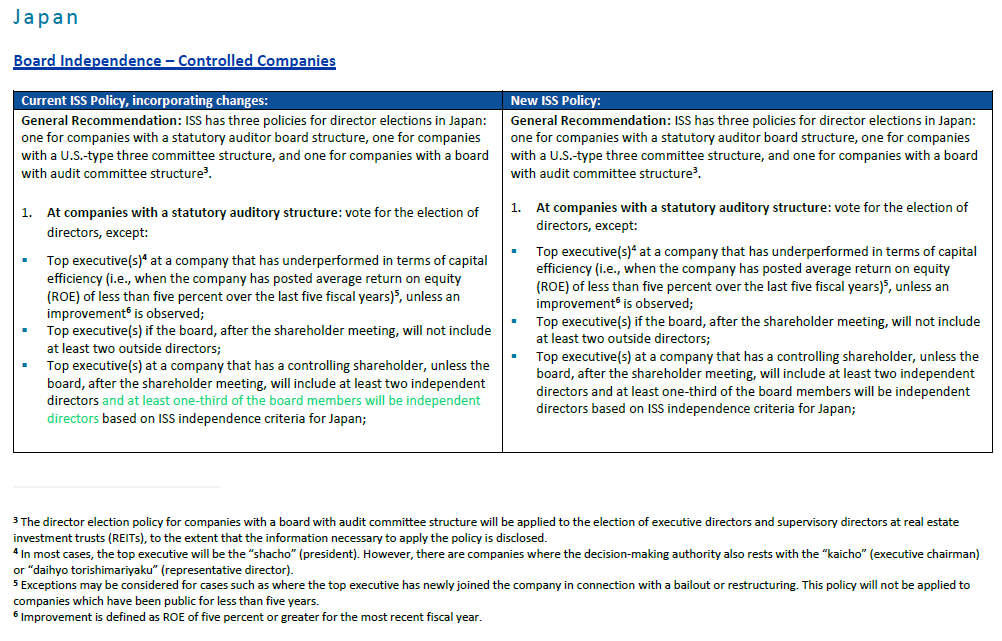1) Pension Funds
2) Other Types of Investors
3) “ESG Factors”
4) Debt Instruments
1) Pension Funds
The proposed revisions to the Stewardship Code do not make it clear enough exactly how corporate pension funds, or smaller pension funds of any type, can sign the Code and comply with it without bearing excessive cost, work, or confusion. Because this is not sufficiently clear at present, to date only an extremely small number of the defined-benefit pension funds at listed non-financial companies in Japan have signed the Code (only about 10, out of a total of 700 or more such funds). As a result, a rather odd situation exists in that most Japanese companies claim to care for their employees deeply, but judging from their actions, do not seem to care much about employees’ investments or post-retirement quality of life – or even, to care about preserving shareholder value by reducing the cash infusions needed to keep their pension plan fully funded. This makes a mockery of the language in the Corporate Governance Code about stewardship (Principle 2.6 企業年金のアセットオーナーとしての機能発揮), and of the Stewardship Code itself.




